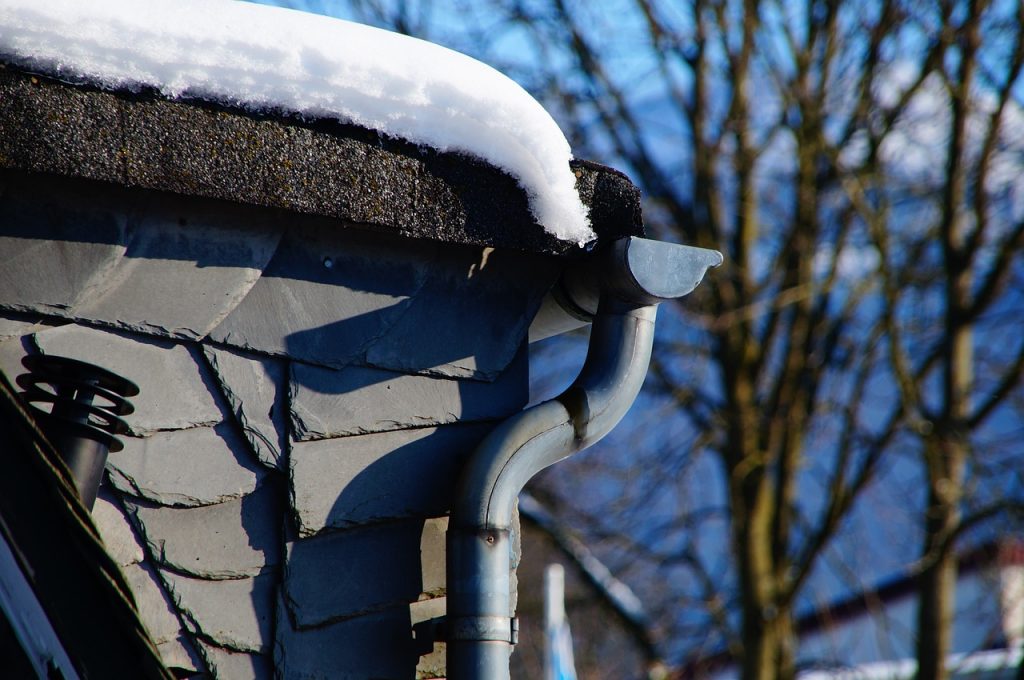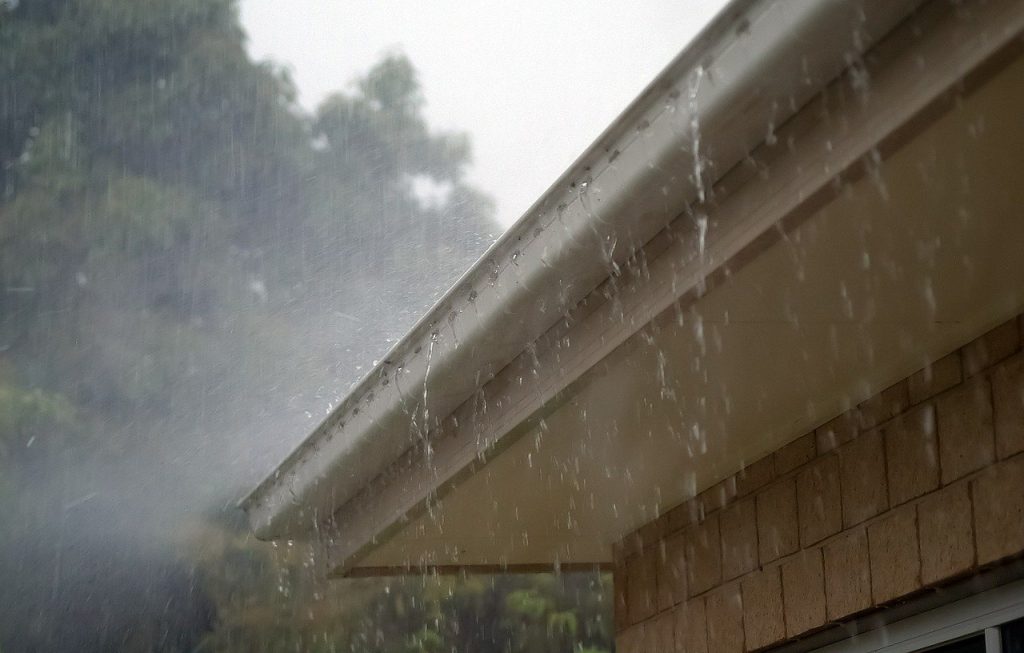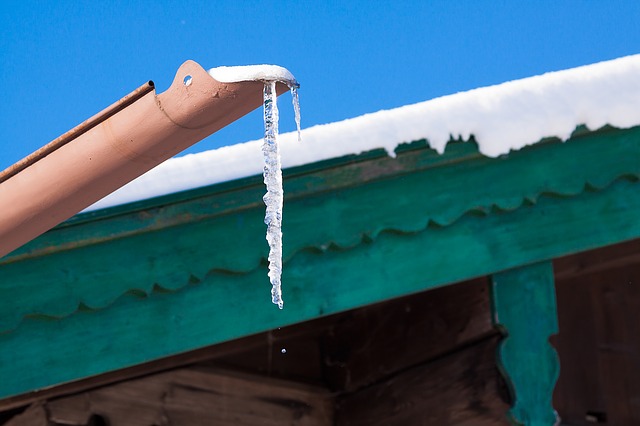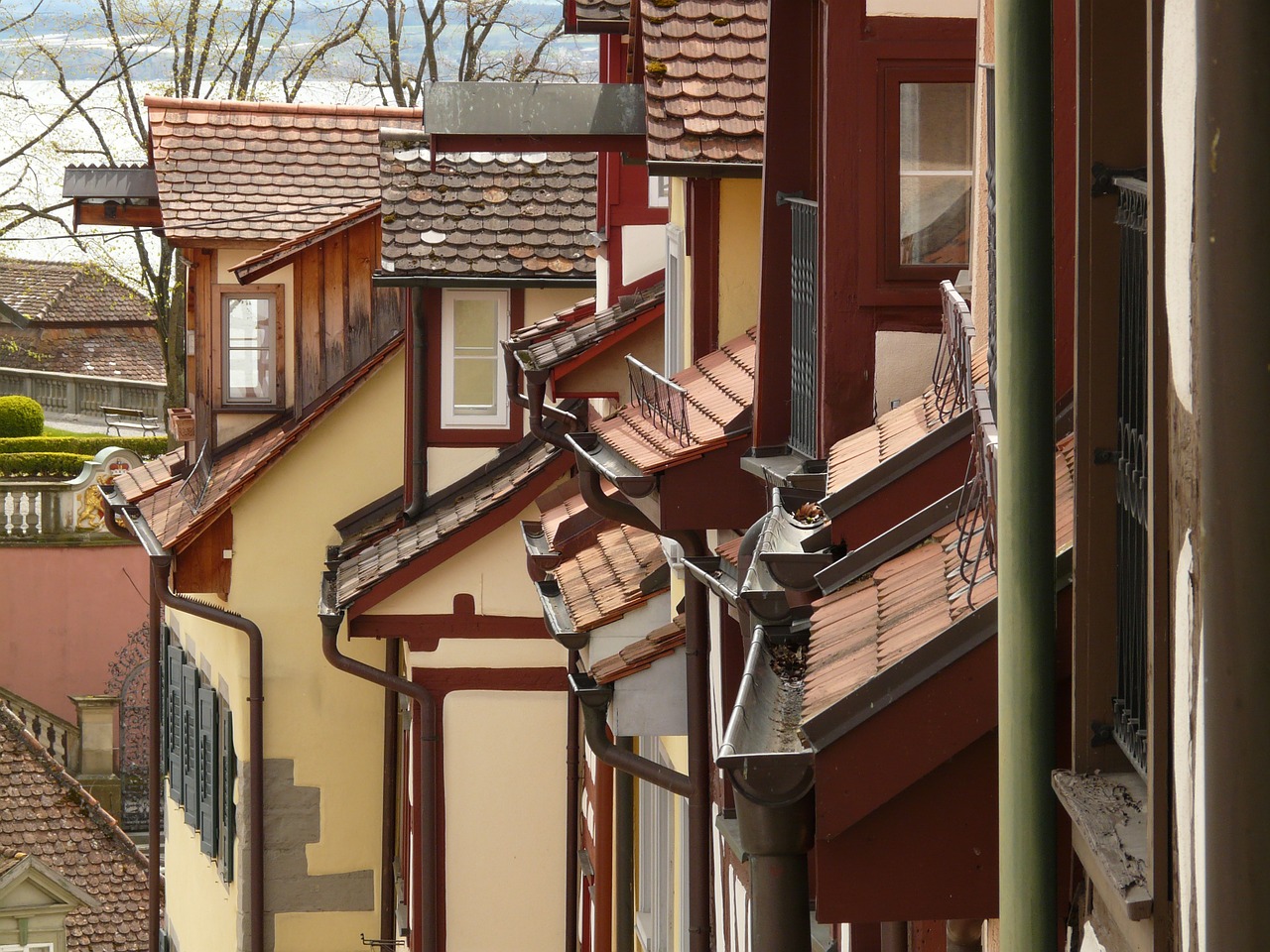Plastic (PVC – polyvinyl chloride), aluminum, zinc or copper gutter? What are the different types of gutters out there? And which one is the best? The choice depends on the climate, the aesthetic effect you want to achieve, and the investment you have. Let’s see which one to choose!
Different types of gutters and their material
There are basically have four types of different types of gutters and their materials:
- zinc,
- copper,
- aluminum and
- PVC.
And as each has its own good and bad sides it’s good to know what is what before making your final decision.

Plastic gutter: cheap and easy to install
Vinyl Gutters, plastic gutters (polyvinyl chloride) or PVC are lightweight and easy to handle. That’s why PVC is easy to cut. Plus, different elements are easily merged with glue so this kind of gutter installation is overall easy.
Advantages
Numerous accessories that fit each type of gutter makes it easy to set it up yourself without much difficulty. The assortments offered to provide a wide range of colors, some of which mimic copper or zinc, roof-shaped profiles and rectangular verticals that can fit with any type of architecture.
Disadvantages
PVC is suitable for temperate climates without heavy rainfall, but it cannot cope with severe cold weather and ice buildup. Over time, it becomes brittle and fragile. You should not lean the ladder on it. The PVC gutter life lasts about 25 years. Also, per linear meter, PVC is cheap, but accessories (elbows, joints, corners, etc.) are relatively expensive. If the roof is complicated, the cost of a PVC drainage system, set by a professional, can reach the price of aluminum and even zinc. In terms of ecology, 1.8 tons of oil is required to produce 1 ton of PVC.
Zinc gutter – a tradition to today’s taste
This material is used for rainy weather because it has excellent physical and chemical characteristics. In fact, zinc protects itself. Therefore, a patina layer forms on the surface due to its chemical reaction with water and carbon dioxide. This natural patina gives it exceptional corrosion resistance and gives it a permanent appearance. Because it is easy to mold, bend, and solder, zinc adapts to the most complicated setting, and its use is made easier by pre-fabricated accessories. You can find zinc rainwater drainage systems in a wide range of standard shapes and sizes, with accessories, with natural finish or already patented, and installation is easier and installation time is short.

Advantages
With a natural finish, zinc quickly receives the patina and requires no special maintenance. It resists bad weather, hail, high-temperature differences, and UV rays better than any other material. Its life span is 50 to 70 years, and it is fully recyclable.
Disadvantages
Zinc gutters have to be soldered, which is not an easy task… even for an experienced craftsman! In terms of price, zinc installation to PVC installation is on average 15 to 25% more expensive, especially if you require more complex projects or gutter replacement.
Aluminum – good value for money
The aluminum system consists of gutters that can be in the form of a cornice, trapezoid or semicircular, and are composed of vertices that are rectangular or round and slightly ribbed. The profiles are custom-made directly on-site, thanks to a vehicle equipped with a mobile profiling machine. The profiling technique increases the mechanical resistance of metals.
Advantages
Stable and long-lasting, natural aluminum resists corrosion, and a factory-applied varnish layer can withstand corrosion. Aluminum gutters require no maintenance or any subsequent treatment. There are many shapes and colors, the price being the same, which means you can choose them according to any type of construction. You can make them in the length you want (up to 20 m or more), and this means that they don’t have any joints. This provides perfect tightness, facilitates water runoff and allows as little slope as possible. The prices of the lacquered aluminum system are quite decent.

Disadvantage
Aluminum is a relatively soft metal. It can deform in the case the large accumulation of ice or if you lean the ladder on it. Only professionals can install aluminum gutter systems and they are not suitable for copper or iron roof covers as they corrode in contact with them. The gutter without visible attachment looks nice, but it’s not easy to install wrinkled knees, work on corners and verticals. In terms of ecology, it takes five tons of oil to produce one ton of aluminum, and it also consumes a lot of energy for its recycling.
Copper gutter – the aesthetically pleasing
Because they match perfectly with various building materials, copper gutters fit well with both old and modern buildings. Copper is incredibly durable, requires no maintenance or replacement, creates a patina that protects it for a long time, and is easy to mold. Setting up a copper system is the same as setting up zinc ones.
First, it has a nice red color and it gets a very nice brown matte finish over time. In order for this color to progress evenly, the tinsmith must be careful not to leave any fingerprints while laying down the gutter. If he does not use gloves, he can coat the gutters and verticals with patina oil, or wipe the copper with a cloth dampened with diesel fuel.
Advantages
Copper gutters extending along roofs and facades raise the value of the building. Copper lasts two or even three times longer than other materials. It acts the same in the sea air and in the urban environment, it is resistant to corrosion and to the most extreme climatic conditions. Since it is a natural material, you can recycle it easily and it almost doesn’t pollute the environment.
Disadvantages
The tinsmith needs to take some precautions during installation, as well as to master the soldering technique perfectly so that the end result is satisfactory. Because copper costs up to about a third of the installing bill, its rainwater drainage systems are 20 to 25% more expensive than zinc ones.

